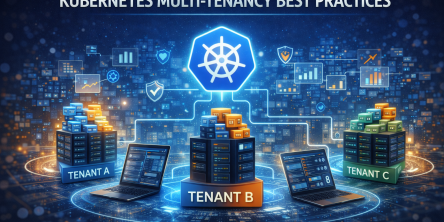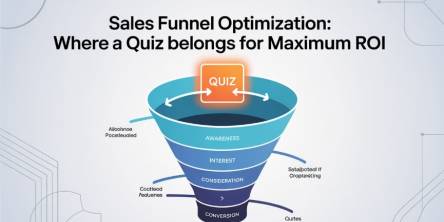PHP frameworks: Why Developers Prefer Laravel

Web apps are an essential part of any and every modern business in the world today. Why? Because we live in a highly digital world wherein more and more things are done online. And given that it is so convenient, it has become imperative for businesses to embrace web apps as an integral part of their strategies. That, then, leads them to one of the most important decisions companies need to make while undertaking such development projects: What PHP framework is best suited for the business’ requirements? If you are wondering about the PHP framework — it is because it continues to be a highly sought after option owing to its ability to ease the development process significantly. But back to which PHP framework should one pick — the answer is mostly Laravel.
Admittedly, it is a new entrant on the PHP framework scene, and yet it has already won much favor among developers and companies. Widely regarded as a clear and simple framework, Laravel brings a world of advantages to the table. For starters, it significantly eases developers’ lives since it does not necessitate extensive coding. Then there is also its very expressive syntax that not only simplifies the programming process but also enables much creativity. There are, after all, 1,164,522 websites in the world that have been built using this nifty PHP framework. Here is another statistic that further vouches for its popularity: Among the top 1 million websites in the world, as many as 8,432 make use of Laravel.
Nonetheless, we have discussed some of its leading features in detail below to help you understand why its popularity continues to rise despite the intense competition it faces in the market.
- Security: Given the state of the digital world, everyone is rightly concerned about cybersecurity. They do, after all, often share sensitive data when engaging with businesses online. So, it is of the utmost importance to make sure that the data stored by the web app is protected from attacks and other vulnerabilities. For this, Laravel offers hashed and salted passwords to ensure that they are never stored as plain text. What happens is that the Bcrypt hashing algorithm generates an encrypted version of the password. Then there are also the prepared SQL statements that thwart any injection attacks.
- Quicker apps: A slow, laggy app can undo a company’s efforts faster than you can imagine. To safeguard against such issues, Laravel comes equipped with a variety of functionalities that enable developers to build lightning-fast apps. The framework is also able to successfully eliminate bugs that may hinder the app’s functions and slow it down, thus further protecting it against disappointing performance.
- User authentication: Again, given just how critical it is to ensure seamless security at all times, Laravel offers provisions that help with yet another relevant factor, i.e., authentication. It allows programmers to pick a method that suits the project and product’s requirements from a variety of authentication methods. Laravel also makes provisions for users to be sent emails/texts whenever there is login into their account.
- Tutorials: Yet another reason that makes Laravel so well-liked in the developers’ community is that it comes with helpful tutorials. Available under the purview of Laracasts, programmers can access both free of charge as well as paid video tutorials that work well to help explain a variety of concepts and aspects of the Laravel framework.
As you can see, Laravel has much to offer and can enrich any custom PHP development project with its many, many benefits. Be it security, ace performance, high level of personalization, or pretty much anything else — trust that this open-source PHP framework will be able to help you with that and so much more. And thus, you will be able to ensure that you have a highly productive web app at your hands at the end.
Similar Articles
The frequency of software releases has reached an all-time high lately. You see, more organizations are migrating to cloud native architectures.
In 2026, Microsoft Excel continues to power the U.S. business ecosystem, supporting over 80% of financial modeling, 70% of operational reporting, and nearly 65% of analyst-driven decision workflows across enterprises.
The rapidly growing volume and speed of digital transactions have had a whole lot of implications for businesses
We live in the age of cloud computing. That's plain to see. However, what may escape many are the operational and financial challenges of managing multiple independent clusters.
Times have changed and how! Take modern technology and the fast-paced digital economy, it is driving. Given the market conditions, any company's infrastructure has become more than just a technical detail.
It has been for everyone to see that the modern digital economy is distinguished by high volume, real-time financial transactions.
Business success has become reliant on efficiency and agility of the underlying technology infrastructure. Clearly, companies now depend on cloud computing to provide seamless services while managing exponential data growth.
Hospitals operate in environments where availability and patient safety are paramount at all times. As medical supply chains expand and regulatory oversight becomes more demanding, manual tracking methods introduce delays and risk.
Every sales funnel has one core goal: turn attention into revenue as efficiently as possible. Yet many funnels leak value at critical stages—visitors bounce, leads go cold, and sales teams chase prospects who were never a good fit.









